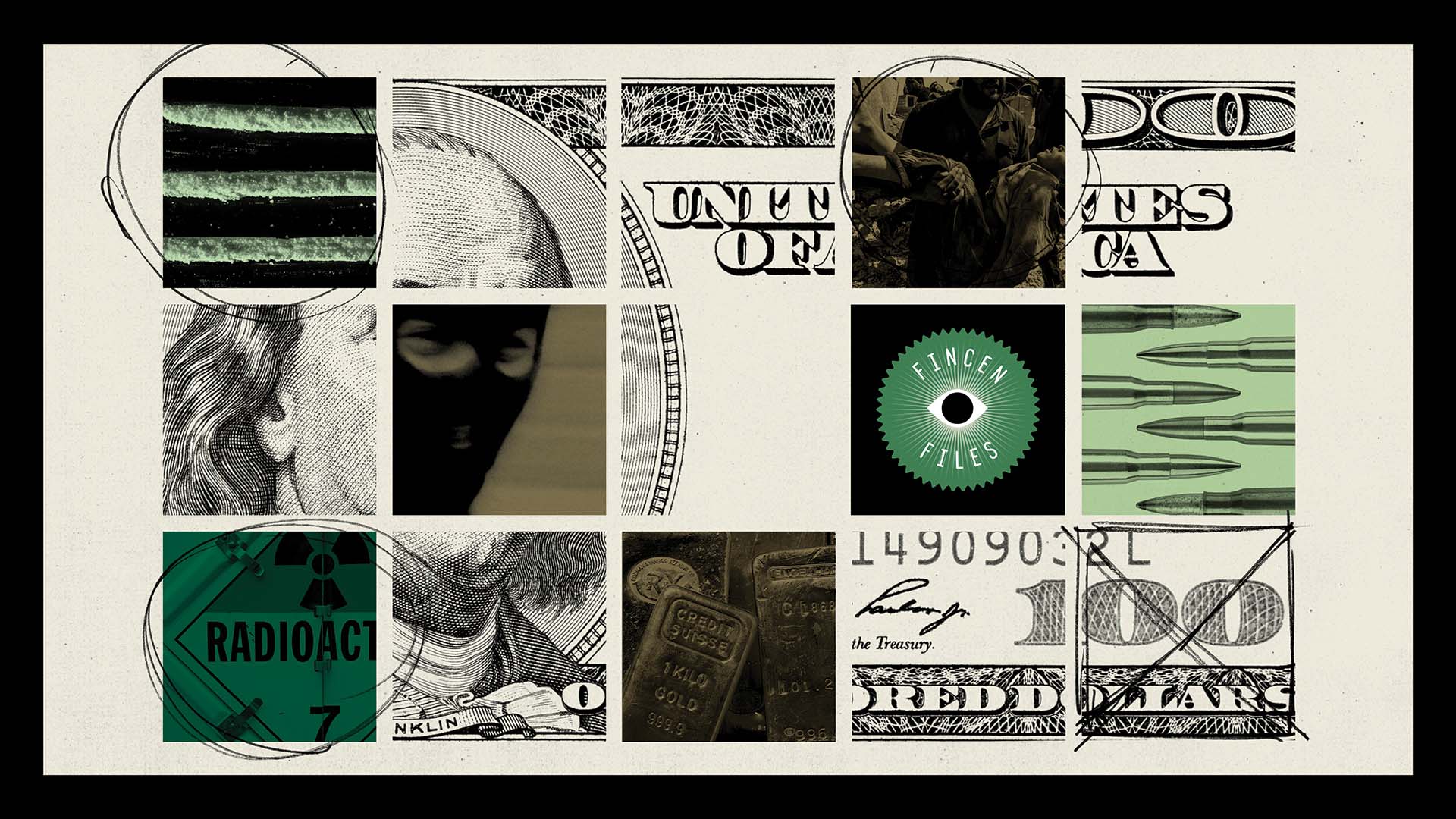IMPACT
As reforms sparked by FinCEN Files roll out a year on, key source is behind bars
The global investigation on how trillions in dirty money flows through major banks has been widely credited for key anti-money laundering reforms currently being implemented in the U.S.

A year on from the FinCEN Files investigation, the United States Treasury unit at the heart of the global exposé is now “working overtime” to implement major anti-money-laundering reforms, while the whistleblower whose leaked documents sparked the investigation languishes in prison.
The International Consortium of Investigative Journalists, BuzzFeed News and more than 100 media outlets published the FinCEN Files in September 2020, uncovering more than $2 trillion worth of suspicious transactions flowing through the global financial system, passing through U.S.-based banks with relatively few impediments.
In the weeks and months that followed, the United Kingdom’s Treasury Committee opened an inquiry into the “deeply troubling” findings of the FinCEN Files, and revelations from journalists were referred to by anti-corruption units in Liberia and the Seychelles. Eero Heinäluoma, a Finnish member of the European Parliament, called for greater banking oversight, saying that Europe’s existing anti-money laundering system was like “a Swiss cheese, full of holes.” The European Union has since proposed a new financial crimes watchdog that would oversee transactions across the bloc and help close loopholes that have been exploited by money launderers.
In the U.S., lawmakers seized the momentum offered by the investigation to push forward long-anticipated reforms to anti-money-laundering laws, leading to the passing of the landmark Corporate Transparency Act in January this year.
At the core of the legislation is a new corporate registry that will record the real owners behind all companies registered in the United States, effectively ending the use of secretive shell companies in the country.
“Timely and effective [Anti-Money-Laundering] Act implementation is a top priority for FinCEN, and we are working diligently with our domestic and international industry partners and law enforcement and regulatory stakeholders to take concrete steps to further the national security of the United States and protect the U.S. financial system and the American people,” the agency said.
The unit’s capacity to serve as the country’s financial crimes watchdog has been in the spotlight over the past year as well. FinCEN receives more than 2 million new suspicious activity reports — which financial institutions are required to file to flag suspicious transactions — each year.
Last March, top anti-money laundering experts said that FinCEN was underfunded, overstretched and lacking technology to keep pace with today’s financial crime challenges. They issued a report recommending a funding boost to revamp how the tiny agency operates. The Biden administration requested $64 million of additional funding for FinCEN to aid in implementing the beneficial ownership registry in its budget proposal.
While the FinCEN Files has been widely lauded and cited over the past year as a key driver for global money-laundering reform, the former FinCEN official-turned-whistleblower who originally provided the thousands of documents at the core of the investigation reported to prison earlier in September to serve six months for sending the confidential documents to a BuzzFeed News reporter.
Natalie Mayflower Sours Edwards was first arrested in 2018, more than two years before the FinCEN Files was published. After pleading guilty last year to sending highly secretive suspicious activity reports from FinCEN to a reporter, she was finally sentenced in June this year.
“I’m absolutely proud of what I did,” Edwards told BuzzFeed News in an interview before reporting to a federal women’s prison in West Virginia earlier this month. “My motive was accountability, and the American people had a right to know what was occurring within Treasury and that it was a national security issue and that American lives were in jeopardy.”
As FinCEN and the U.S. prepare for a new era of corporate transparency, Edwards’ sentencing was seen as a warning to prevent potential future whistleblowers from going to the press. While the new legislation includes greater rewards for whistleblowers bringing inside information to the government, the penalties for taking that information public through the media are more than twice as harsh as the penalties for failing to disclose a company in the first place.
“Instead of the government doing their job,” Edwards told BuzzFeed News, “they decided to come after a whistleblower.”



